This article was reviewed by Steve Snedeker, professional landscaper.
Do you want to have what many consider "black gold" in your garden? But maybe you're having second thoughts because you're afraid the compost might stink or attract pests into your property. It doesn't have to be the case if composting is done right. We've done the research and we're sharing with you how you can compost your garden waste properly.
There are three ways to compost garden waste:
- Trench compost is burying the waste underground.
- Compost pile involves the careful layering of the waste on the ground and covering it with a tarp.
- Compost bins require the use of holed containers where the waste will be aerated and heated to decompose faster.
Keep on reading so you can learn more about the three different types of composting. We'll also tell you what you can and cannot compost and how you can speed up composting at home. Let's begin!
![Compost bin in the garden, How To Compost Garden Waste At Home [3 Foolproof Techniques]](https://gardentabs.com/wp-content/uploads/2022/09/54.-How-To-Compost-Garden-Waste-At-Home-3-Foolproof-Techniques.jpg)
A Guide to Composting At Home
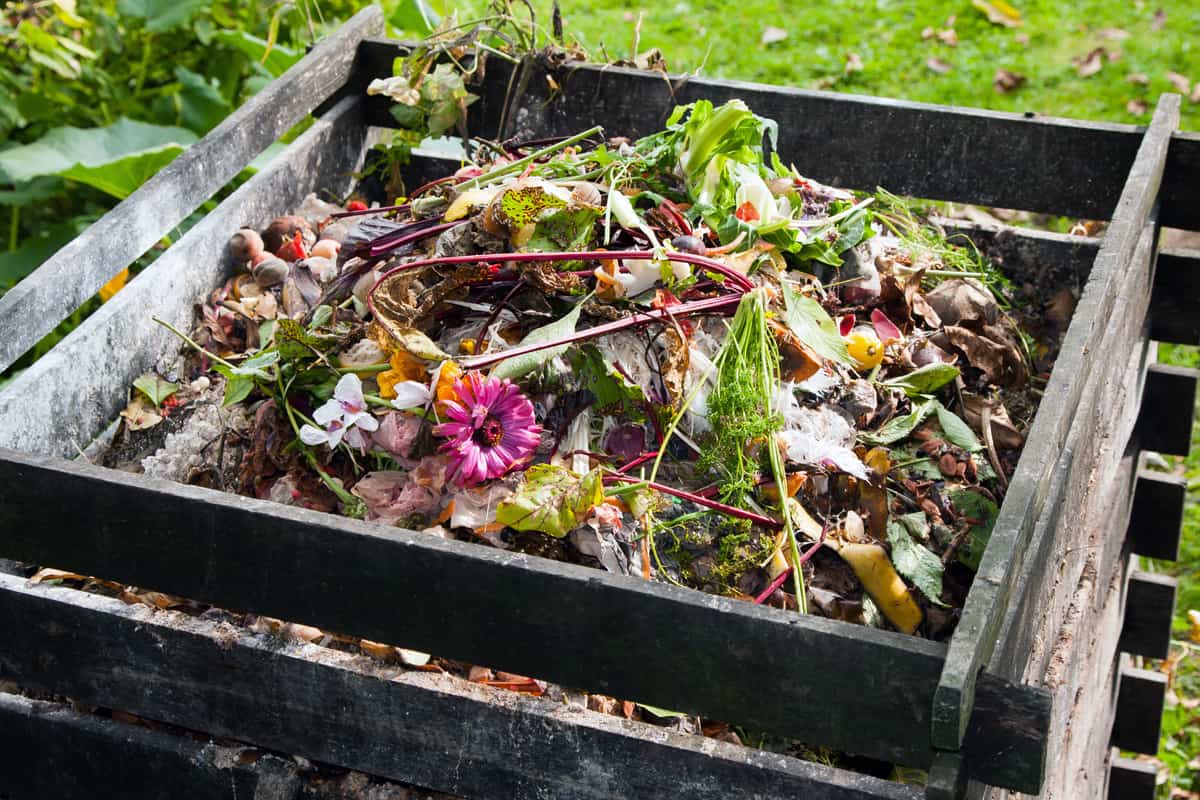
Compost is aptly called "gardener's gold" or "black gold" because of the many benefits that it gives to your plants, garden, and the environment.
If using compost, your soil is made fertile, your plants get more nutrients and become healthier with reduced risks of pests and diseases, and you reduce your waste and carbon footprint. How often does that happen all at the same time? It's truly like holding gold in your hands, especially for us who love gardening.
And the best part is that it is easy to do and doesn't come with a golden price tag. You can turn the waste in your garden into black gold when you compost at home.
What Can You Compost
Compost is made of organic matter usually from garden waste, kitchen scraps, and recyclable materials. But not everything can be used for composting.
Here's a guide to the basic ingredients of compost.
Browns
These are your garden wastes, including fallen or cut branches, twigs, dried leaves, straw, and wood chips. You can also use recyclable materials such as newspaper (with black and white print only), brown paper, cardboard (remove staples, stickers, and tape), and egg cartons.
These materials break down at a slow pace, but they are rich in carbon, which is one of the most important nutrients for plants.
Greens
These include grass and other fresh clippings from the garden, vegetable and fruit peelings, and even used soil from your old pots. You can also put your used tea bags, tea leaves, and coffee grounds from your kitchen.
These are all rich in proteins and nitrogen. They will decompose faster than the browns.
Water
Your compost needs to have the right moisture level. When it's too wet, it'll kill the microorganisms. When it's too dry, these creatures would be dehydrated.
You can add more browns when your compost is too wet so that they can absorb the moisture. But if it's too dry, you only need to water the compost.
Oxygen
The oxygen in the air is needed by microorganisms to break down organic matter.
What Not To Compost
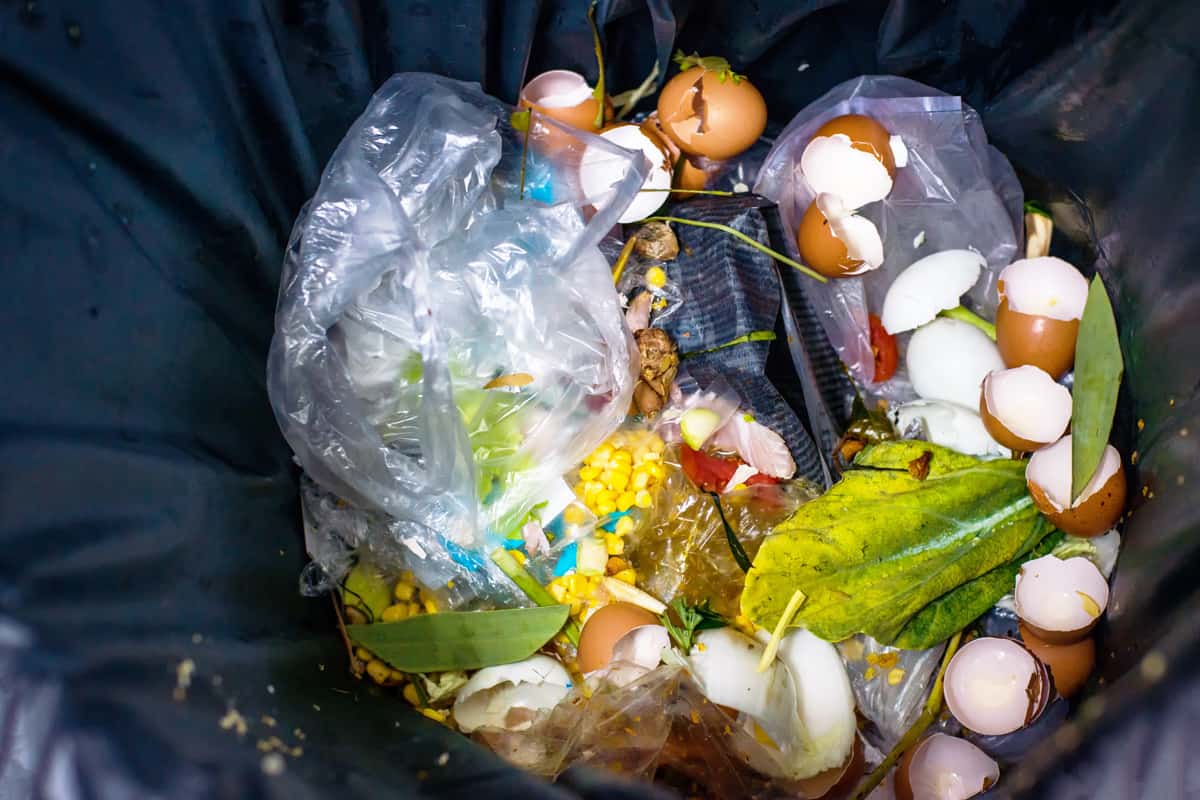
Not everything in your garden can go to your compost bin or pile. They won't help with the decay process, so be mindful of what you add to the mixture.
- Don't put coal, charcoal ash, leaves, or black walnut tree twigs as these might contain substances that can be harmful to plants when you use your compost later on.
- Garden trimmings that have been treated with chemical pesticides also cannot be used for composting. They might kill the beneficial insects and microorganisms in a pile.
- Plants with diseases and infestations cannot be added to your compost as they might still be carriers later on.
- Meats, bones, oils, and dairy products such as eggs, milk, and yogurt are also not recommended to be added to your compost. They will attract pests like flies and rats, aside from causing a stinky odor.
- Don't put dog and cat waste on the compost mixture. These might contain germs, bacteria, viruses, and other pathogens that could be harmful both to plants and humans.
These are just some of the things that you shouldn't include in your pile so that you can have a successful compost.
Different Types of Composting
There are different ways of composting. You can do it outdoors or indoors, in a big area or a small space, as long as you choose the right type of composting that'll work best with your situation.
Trench Compost
This is one of the oldest, easiest, and most practical ways of composting. You just dig a hole or trench in your garden. It's best to choose a location near your plant beds so that the roots of the surrounding plants will immediately benefit from the available nutrients.
The trench's depth should be about 8 to 10 inches. Then you can put your garden waste in there together with your scraps from the kitchen. Fill the hole with the soil that you removed earlier.
You can water it from time to time to keep the compost moist. That's it! The earthworms and other microorganisms underground will take care of the rest.
They will start decomposing in two weeks, but the whole process might take up to 6 weeks depending on the climate and materials that you put in there.
Compost Pile
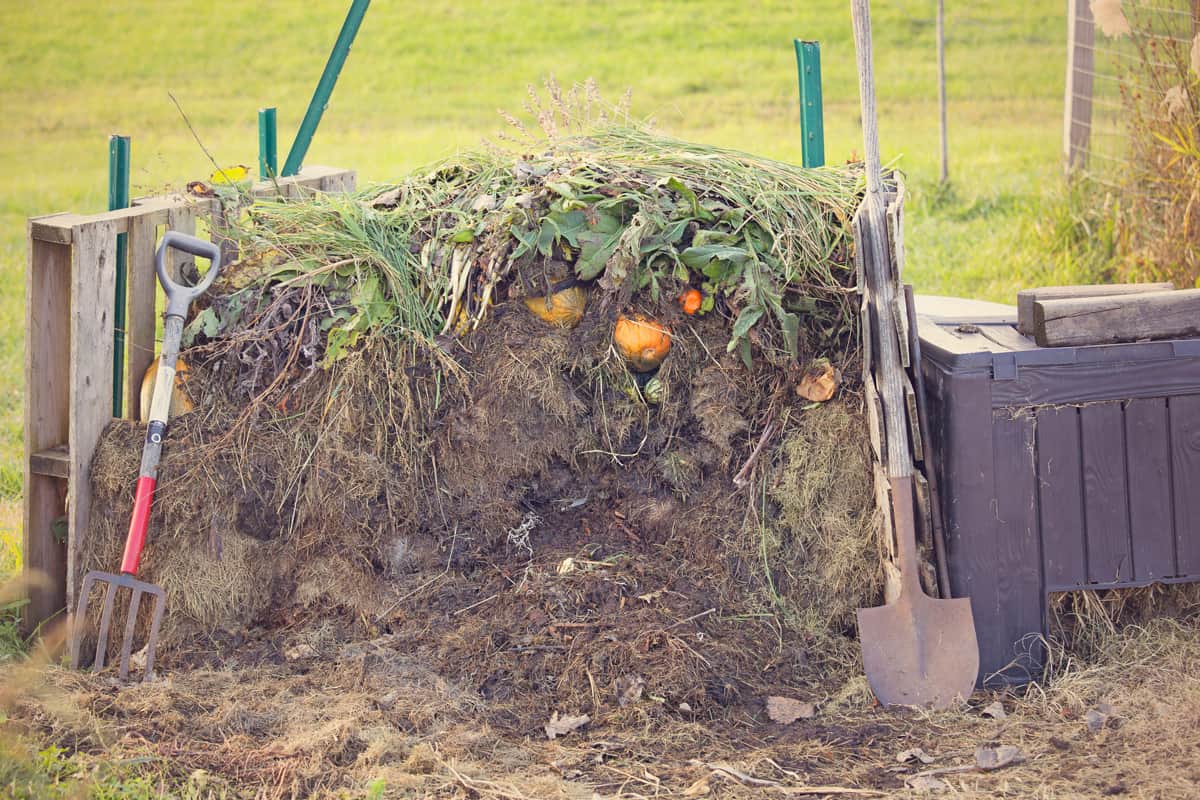
If you don't want to dig, you can just start a compost pile instead. This is good if you have a spacious garden.
Choose a site for composting. It would be best to keep it a good distance from yours and your neighbors' houses since this may not be a pretty sight for everyone.
Layer your green and brown waste materials. Water them to keep them moist but not soggy. Turn the pile often to aerate it.
Cover the pile with a tarp, especially during the rainy season but remove the cover from time to time when the weather permits to let the pile breathe.
That's all you need to do. The bacteria will take care of decomposing the waste materials.
Compost Bins
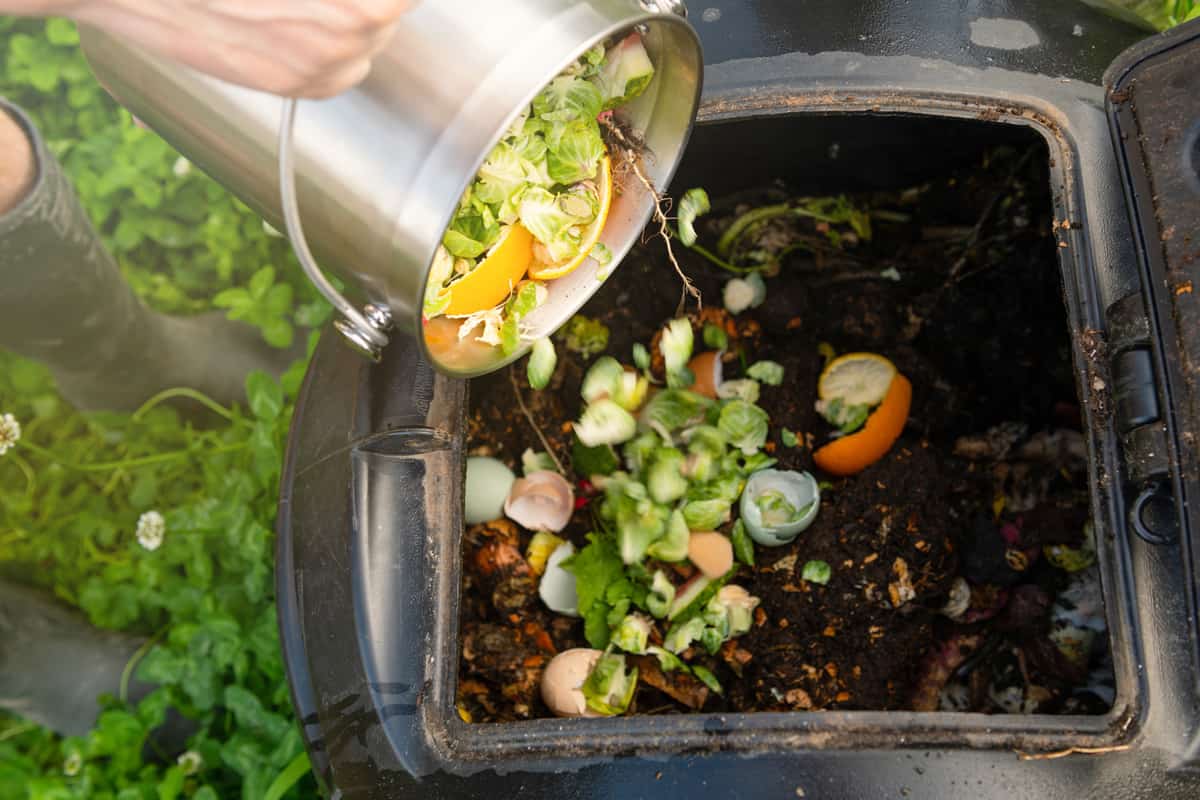
You can buy composters or bins from your local home and garden center or online. Choose the size that'll fit your outdoor or indoor space. Make sure there are holes for draining water and ventilation. If the bin that you have doesn't have holes, drill some before you start composting.


Check out this composter on Amazon.
Put twigs and branches at the bottom of the bin to allow air to pass through. Then you can already put your kitchen and garden waste and mix them all together.
Garden waste is mostly dry, while kitchen scraps are usually wet. You have to balance the moisture content in your bin to encourage decomposition. It shouldn't be too soggy but not too dry, either.
If you notice that it's too dry, you can add water to the compost. If it's too moist, add more straw, leaves, or grass clippings to absorb the excess moisture.
Always keep the lid closed as the compost "cooks." When the bin is about full, the mixture will eventually become hot, and decomposition will start. This is why this process is also called hot composting. Your compost should be ready in one to three months.
These are the three ways to compost your garden waste. Trench compost and compost pile are easy enough to do as long as you have the space. But they take a longer time. Compost bins can hasten the decomposing process but you would need to be involved more in monitoring to ensure that the right conditions exist.
How to speed up composting at home?
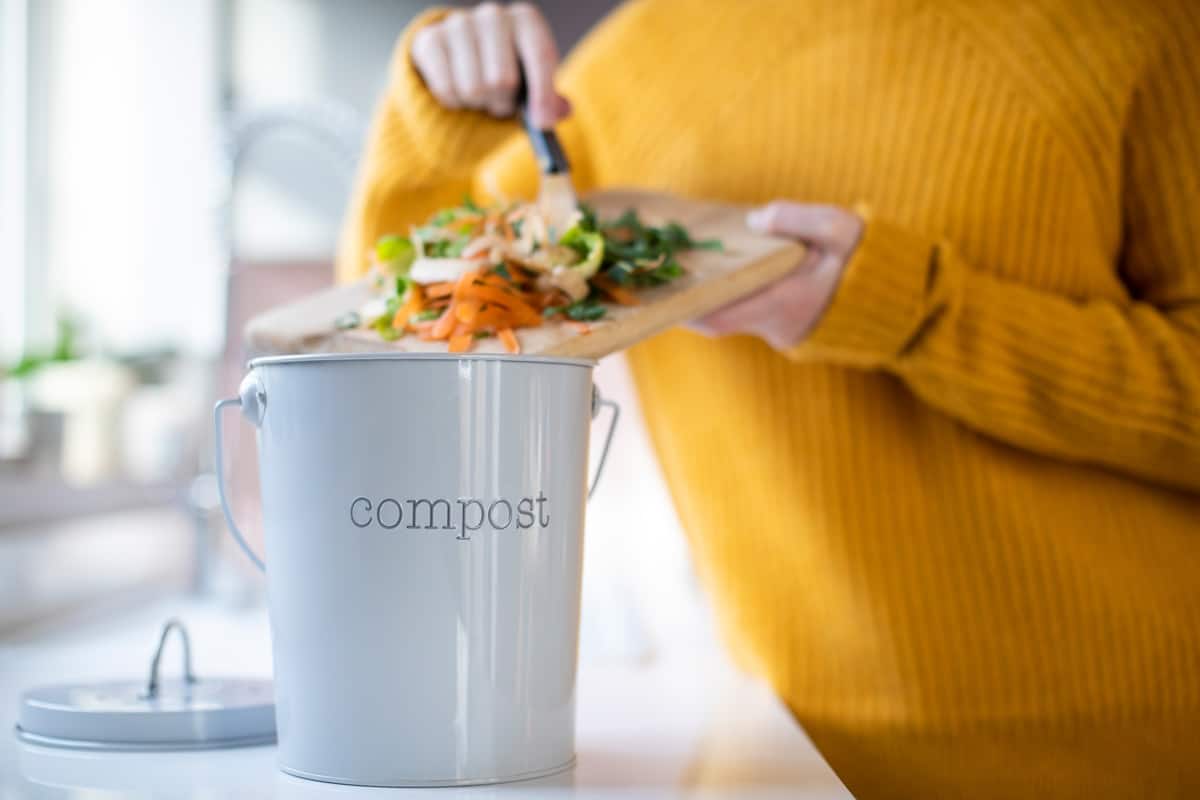
One of the drawbacks of composting is that it takes a long time before you can reap its benefits. It is a slow process as you allow nature to take its course and decompose the materials.
However, at this day and age, everyone wants quick results. Good thing there are ways for you to speed up the decomposition process. Here are some of them.
- Cut or shred. Make sure you shred the materials for composting into smaller pieces. Bacteria and other microorganisms will be able to break them down faster.
- Aerate. Remember, your compost needs oxygen from the air. Turn the pile of materials from time to time so that they can breathe. Putting tree branches at the bottom also helps with this. The air pockets that you create will help distribute heat all over the compost and speed up the "cooking" process.
- Maintain a 4:1 carbon to nitrogen ratio. As mentioned earlier, your brown waste is rich in carbon, while the green waste is rich in nitrogen. They balance the moisture level, heat, and nutrient content of your compost.
- Insulate. Your compost needs heat, so you should prevent it from escaping by covering the lid of your compost bin. For your compost pile, you can cover it with straw or tarp.
- Moisture. It is important to keep your compost moist all the time, as this will encourage decomposition. If you find it too dry, add some water. If it's too wet, add more brown waste so that it can absorb the excess water.
- Volume. It is best to have a large compost pile as it will generate more heat and decompose faster.
- Heat. The ideal temperature range is 130 to 160 degrees Fahrenheit so that the materials will decay quickly.
- Accelerators. Aside from the basic ingredients for compost, you can add boosters to quicken the composting process. Examples are worm castings and chicken and horse manure.


Find these worm castings on Amazon.
Follow these tips so that you can enjoy your compost sooner.
Final Thoughts
You can choose between trench compost, compost pile, or compost bin, whichever suits your way of living, and still turn what is considered to be a mess into something beautiful and fruitful for your garden.
Check out more of our articles about composting:
How To Store Compost In The Winter [9 Solutions To Consider]
Should A Compost Pile Be In The Sun Or Shade?
![How To Compost Garden Waste At Home [3 Foolproof Techniques]](https://gardentabs.com/wp-content/uploads/2024/02/How-To-Compost-Garden-Waste-At-Home-3-Foolproof-Techniques.jpg)
